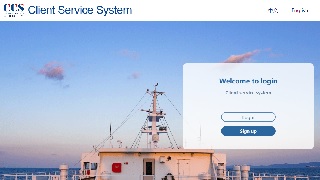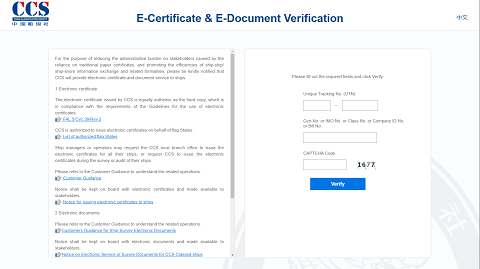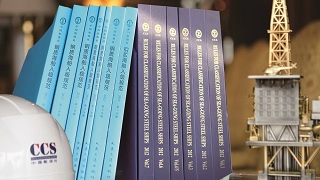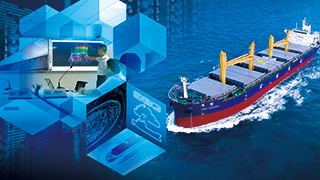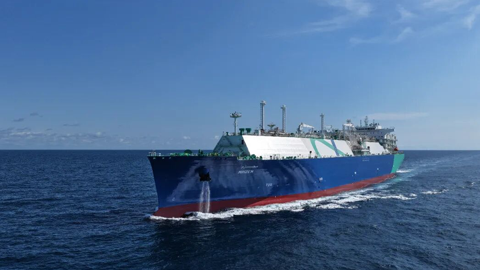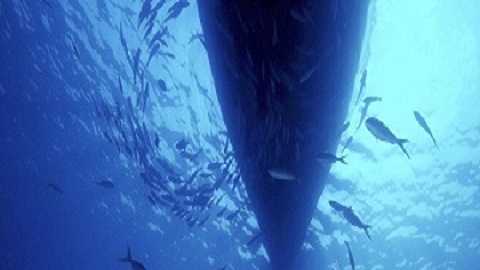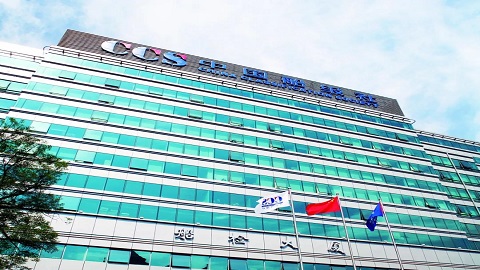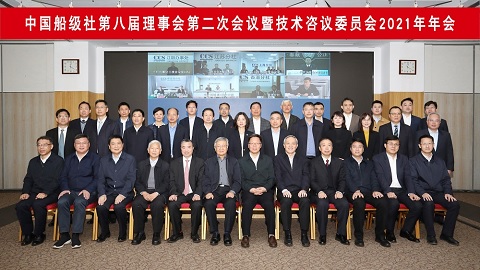Green Technology Line Team

As of March 2023, China Classification Society (CCS) had successively issued 87 rules and guidelines related to green ecology, mainly regarding new energy/clean energy applications, energy efficiency technology, energy efficiency assessments, greenhouse gas emissions, ecological protection, pollution prevention, personnel health, etc . The above rules and guidelines support 81 green eco-related notations for the industry to choose from . So far, the CCS rules and guidelines for green-eco ships have been applied on 5,595 ships classed, which strongly supports the industry’s needs for green and low-carbon development.
I. New energy / clean energy
1. LNG fuel
In terms of LNG-fuelled ships, the Rules for Natural Gas Fuelled Ships have been formed through more than 10 years of continuous research & development and iterations since CCS released the Guidelines for Survey of Gas Fuelled Ships in 2008. The Rules have achieved coverage of all water areas and ship types, i .e . , it is applicable to all vessels and all ship types (including dangerous goods carriers and passenger ships)sailing in inland waterways, coastal areas and international waters . The Rules provide technical specification and standard for the design, construction and operation of natural gas fuelled ships .
2. LNG bunkering
The current Rules for LNG Bunkering Ships (2023) is applicable to LNG bunkering ships sailing in inland waterways,domestic coastal areas and international waters . The Rules for LNG Bunkering Pontoons (2021) is mainly applicable to the design, construction and survey of LNG bunkering pontoons .The Guidelines for LNG Fuel Bunkering Operation (2021)is mainly used to guide the industry to carry out safe LNG operations on water, and is applicable to main modes of LNG fueling on water at present, such as bunkering by tanker,bunkering by shore station, bunkering by bunkering pontoon,and bunkering by bunkering ship . So far, CCS rules have formed a complete standard system for LNG bunkering on water .
3. Alcohol fuels (methanol / ethanol)
Since 2015, CCS has started the research and development of the rules and standards for ships fuelled by alcohol fuels (methanol/ethanol fuel) . In 2017, “Part 1 - Methanol/Ethanol”of the Guidelines for Ships Using Alternative Fuels was released . In 2020, CCS carried out the “Research on Guidelines for Survey of Methanol/Ethanol Fuelled Ships”, combined new market demands and technological developments, and referred to the relevant content of the IMO’s Interim Guidelines for the Safety of Ships Using Methyl/Ethyl Alcohol as Fuel , improved the technical requirements for the survey of methanol/ethanol fuel ships, and eventually formed the Guidelines for Ships Using Methanol/Ethanol (2022) . The Guidelines has come into effect on July 1, 2022, and replaced the content of Part 1 of the Guidelines for Ships Using Alternative Fuels after coming into effect.
4. Hydrogen fuel
In terms of hydrogen fuel, at present it mainly involves the application of hydrogen fuel cells on ships . Based on the characteristics and development status of hydrogen fuel cells,CCS has successively carried out special research on hydrogen fuel storage, materials, hydrogen fueling, ventilation and fire protection, electrical and monitoring, etc . , formed a number of research results, and released relevant rules and standards for hydrogen-fuelled ships in 2017. After that, based on the current development trend and new demands of hydrogen-fuelled ships,in 2019, CCS and the industry have jointly carried out research and development of key technologies for hydrogen-fuelled ships, and simultaneously promoted the design and construction of hydrogen fuel demonstration ship projects . In 2020, CCS initiated a project to carry out the “Research on Guidelines for Survey of Hydrogen Fuelled Ships”, and formed the Guidelines for Ships Using Fuel Cell Power Plants (2022) . The Guidelines came into effect on July 1, 2022, and replaced Part 2 of the Guidelines for Ships Using Alternative Fuels .
5. Biodiesel
In 2017, CCS released relevant rules and standards for biodiesel-fuelled ships . The main content of this standard is reflected in “Part 3 - Biodiesel” of the Guidelines for Ships Using Alternative Fuels, which is applicable to inland waterway ships, domestic coastal ships and international sea-going ships fuelled by biodiesel . In 2023, CCS will continue to carry out research on biodiesel technical standards for ships, and will form a new version of the Guidelines for Ships Using Biodiesel Fuel to replace Part 3 of the Guidelines for Ships Using Alternative Fuels .
6. Ammonia fuel
In 2021, CCS launched the “Research on Application Technology for Ammonia Fuel for Ships”, which mainly focuses on the safety, environmental protection and feasibility of the technology for ammonia fuel used in engines on ships,and the mastery of key technologies such as ammonia fuel vessel layout, storage, refueling, supply, and firefighting . Based on the research results, CCS prepared the Guidelines for Ships Using Ammonia Fuel (2022) . The Guideline has come into effect on July 1, 2022, and is applicable to inland waterway ships, domestic coastal ships and international sea-going ships fuelled by ammonia .
7. Battery power
As early as in 2010, CCS began to study the rules and standards for lithium-ion battery-powered ships, carried out technical research on actual ship applications, and transformed relevant achievements into rules and regulations . The latest Guideline for Survey of Battery Powered Ships puts forward the concept of safety classification and multi-layer safety protection for the first time, and solves the safety monitoring and controlling problem in the application of different lithium-ion batteries for ships in a targeted manner . Recently, based on the concept of safety monitoring of full life cycle of ship battery power, CCS has transformed from passive safety to active safety, considered both the research results of lithium battery power ships and the latest needs of industry development,revised the safety technical requirements for battery powered ships, and formed the Rules for Ships Using Battery Power(2023), which will come into force on June 1, 2023.
8. Shore power
According to the actual needs of shipping development,CCS has carried out a special study on the technical requirements of shore power used by ships, and formulated rules and standards for the use of shore power eceiving facilities by ships, included them in Chapter 19 of Part 8 of the Rules for Classification of Sea-Going Steel Ships and the Rules for Construction of Steel Inland Ships (2019 Amendment Notice); it has formulated the survey and testing standard for port power supply facilities - the Guideline for Survey of Onshore Power Supply Facilities for Ships (2018),and formed the survey capabilities of ship power receiving systems and the consulting service capabilities of port power supply systems .
II. Energy efficiency technology and energy efficiency evaluation
The CCS energy efficiency rules and guidelines system has basically covered high-efficiency propellers, wind-assisted navigation, air film drag reduction, air lubrication, solar energy and other energy efficiency technologies, as well as guidelines for EEDI, EEXI, CII and the energy efficiency operation index .
III. Ecological protection
The CCS rules system for ecological and environmental protection is mainly composed of two aspects: ballast water and anti-fouling . They mainly include the Guidelines on Survey and Certification for Ballast Water Management of Ships (2022), the Guidelines for Development of Ship Ballast Water Management Plans (2022), the Guidelines for Type Approval of Ship’s Ballast Water Management Systems (2022), the Guidelines for Implementation of Ballast Water Convention (2022), the Guidelines for Management of Recognition of Suppliers and Personnel Qualification (2022), and the Guidelines for Survey of Anti-fouling Systems on Ships (2023) .
In order to implement the latest requirements of the amendment to the AFS Convention (Resolution MEPC .331(76)),CCS completed the revision of the Guidelinesfor Survey of Anti-fouling Systems on Ships (2023) in 2022.
IV. Air pollution prevention and domestic sewage control
The air pollution prevention standard system of CCS is mainly composed of relevant guidelines on low-sulfur oil and after-treatment of ship emissions . They mainly include the Guidelines for Use of Low Suphfur Distillate Fuels in Ships(2018), the Guidelines for Design and Installation of Exhaust Gas Cleaning Systems (2022), Guidelinesfor Testing and Survey of Exhaust Gas Cleaning Systems (2022), the Guidelines for Exhaust Gas Cleaning Systems Ready for Ships (2016), the Guidelines for Application of Selective Catalytic Reduction (SCR) System Onboard Ships (2022), the Guidelines for Approval and Survey of Selective Catalytic Reduction (SCR) Systems (2020), the Guidelines for Presetting Selective Catalytic Reduction (SCR) Systems (2016), the Guidelines for Application of Exhaust Gas Recirculation (EGR) Systems Onboard Ships (2020), and the Guidelines for Testing and Survey of Nitrogen Oxide Emissions from Diesel Engines for Ships (2020) .

V. Ship noise
In order to meet the needs of the industry and improve the control level of underwater radiated noise in ship design and construction in China, on the basis of the Guidelines for Detection of Underwater Radiated Noise from Ships (2016), CCS has conducted further research on the technical requirements and measurement procedures for underwater radiated noise, and developed the Guidelines for Underwater Radiated Noise from Ships (2018) based on the actual shipbuilding situation in China .
In terms of cruise ships, as passengers have higher and higher requirements for comfort, CCS has carried out research on noise forecasting for cruise cabins, and formulated the Guidelines for Cabin Noise Forecasting for Cruise Cabins based on the research results .
VI. Personnel health
CCS has carried out research on epidemic prevention safety for ships, and formulated the Guidelines for Epidemic Prevention and Control of Ships (2020) . In the future, CCS will continue to increase the research and development of green ecological rules and standards, carry out in-depth research and development of new/ clean marine energy applications, fueling, marine-fuel life-cycle greenhouse gas emission assessment, and research and development of relevant rules and standards for carbon capture systems in ship applications, form a more complete framework system of green-eco rules, and help the high-quality development of the industry.
Note: If you need to reprint, please indicate the source of the information.

